We value your privacy
On our website, we use services (including from third-party providers) that help us to improve our online presence. The following categories of cookies are used by us and can be managed in the cookie settings. We need your consent before being able to use these services. Alternatively, you may click to refuse to consent, or access more detailed information and change your preferences before consenting. Your preferences will apply to this website only. You can change your preferences at any time by clearing your browser history/cache or visiting our privacy policy page.
By authorizing third-party services, you allow the placement and the reading of cookies and the use of tracking technologies required to keep our website reliable and secure.

Guaranteed waterproof to a depth of 2,000 feet (610 meters) when it was launched in 1967, then to 4,000 feet (1,220 meters) from 1978, the Sea-Dweller combines all the attributes of the modern divers' watch.
Tested in real-life conditions as part of the Tektite program, initiated jointly by NASA, the US Navy and the US Government in 1969, the Sea-Dweller was employed during the first major experiments with underwater habitats.
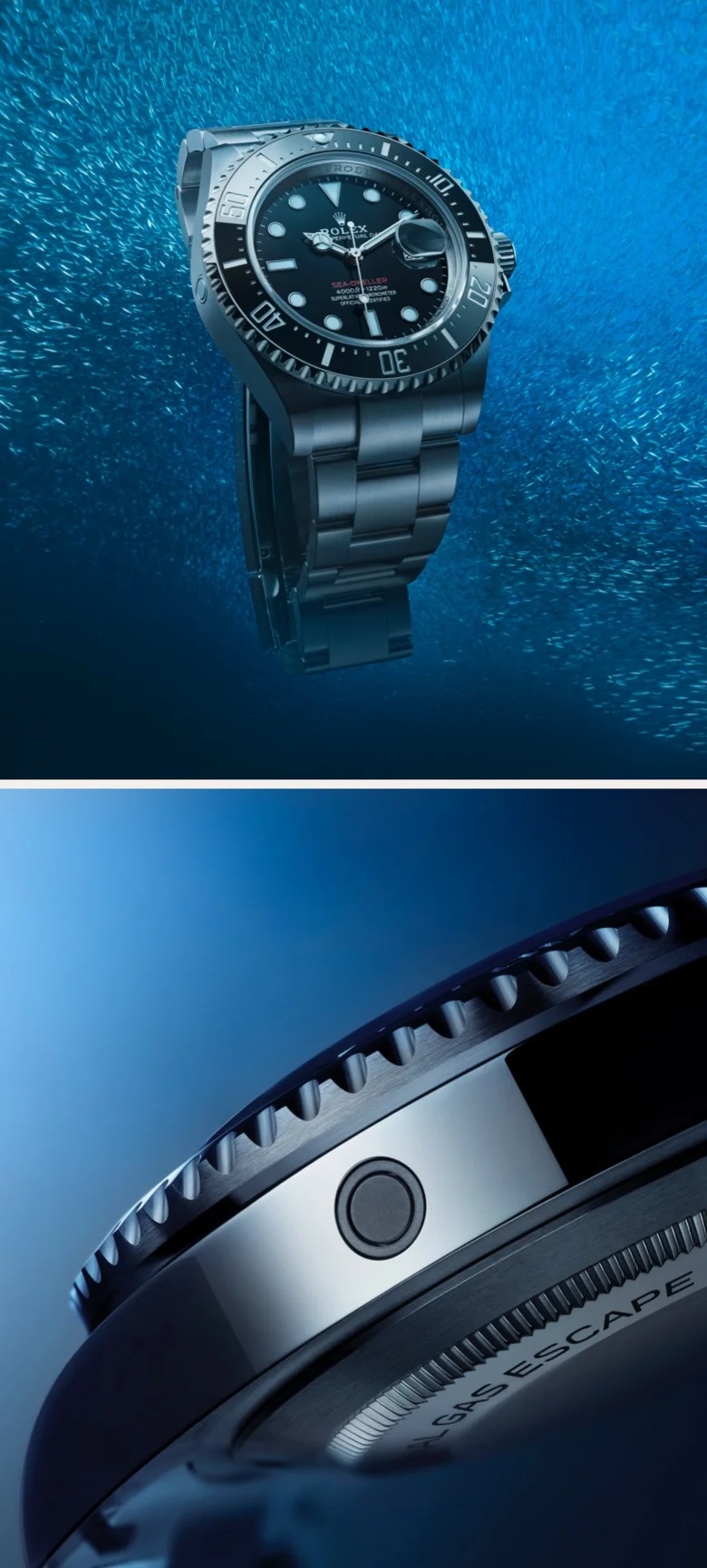
In the 1960s, so-called “saturation” diving made it possible to remain at great depths for extended periods. It consists of housing divers in a pressurized habitat, so as to reproduce the pressure that prevails in their underwater working environment. This means that they need only undergo a single decompression process, at the very end of the mission.
This process can damage the watch. Divers breathe a mix of gases composed mainly of helium, whose extremely fine atoms can penetrate the case. On returning to the surface, the helium trapped inside can create a phenomenon of excess internal pressure liable to compromise its integrity.
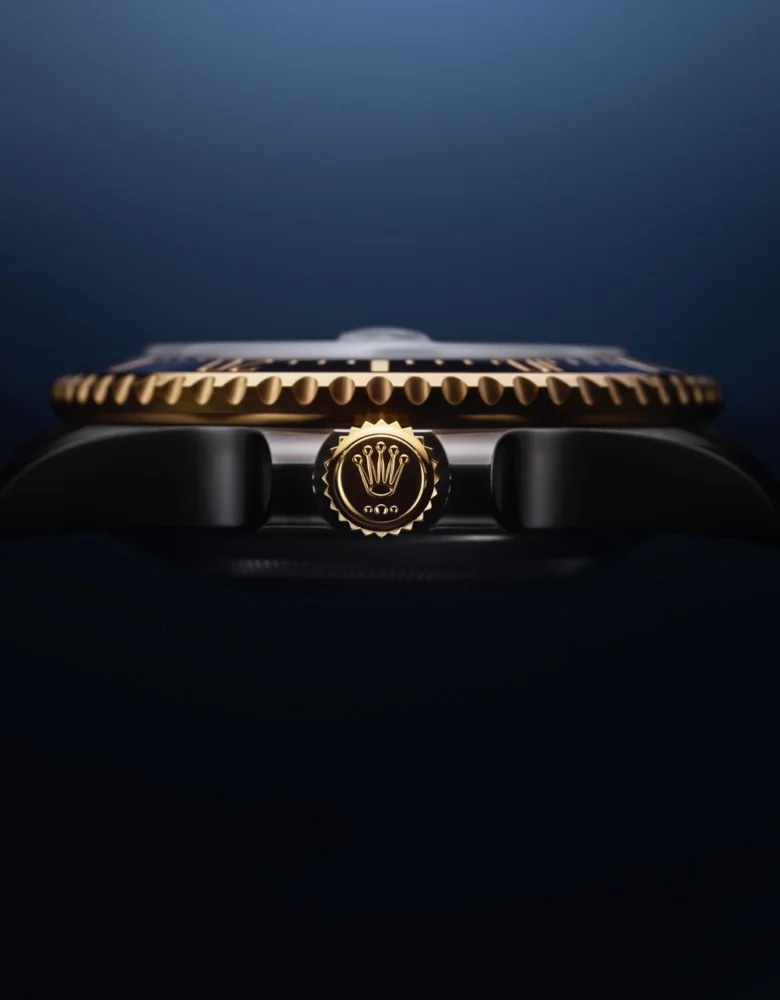
In order to overcome this problem, in 1967 Rolex introduced the Sea-Dweller, a divers' watch with a helium escape valve. It is screwed to the case and consists of a hermetic cylinder, a piston, a gasket and a spring, acting as a safety valve. When the internal pressure in the case is too high, it opens automatically, allowing the helium atoms to escape.
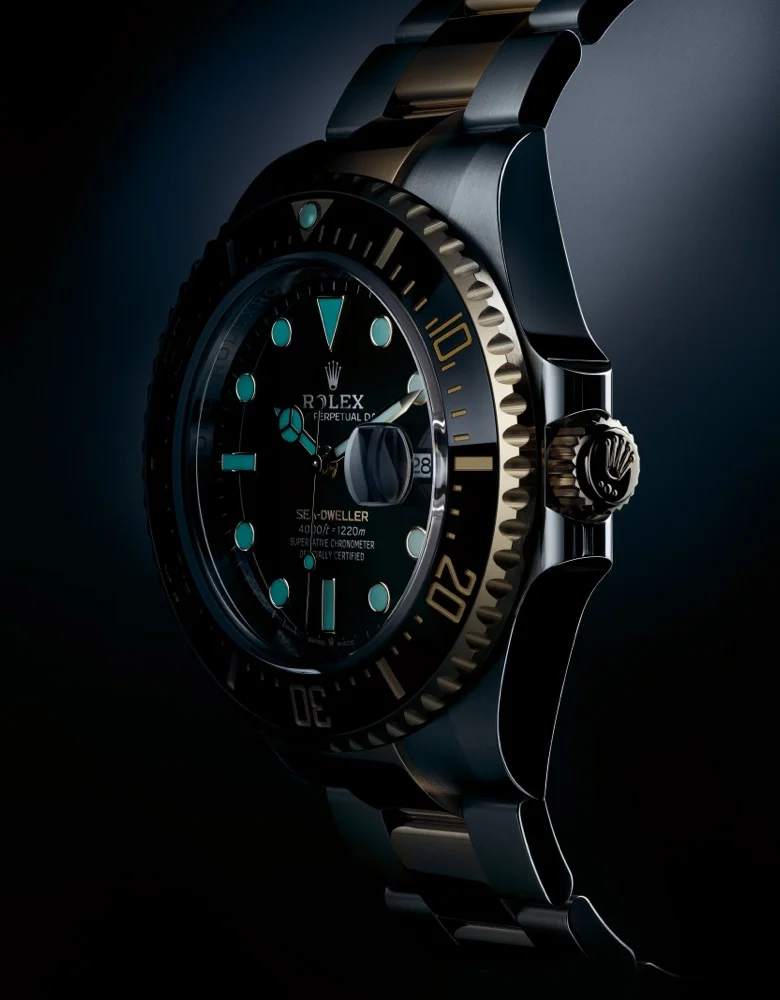
The Chromalight display, exclusive to Rolex, gives the Sea-Dweller optimal legibility in any circumstances. The hour markers, hands, capsule and bezel are filled or covered by hand with a luminescent material that emits an intense blue glow in the dark that lasts up to two times longer than traditional phosphorescent materials.
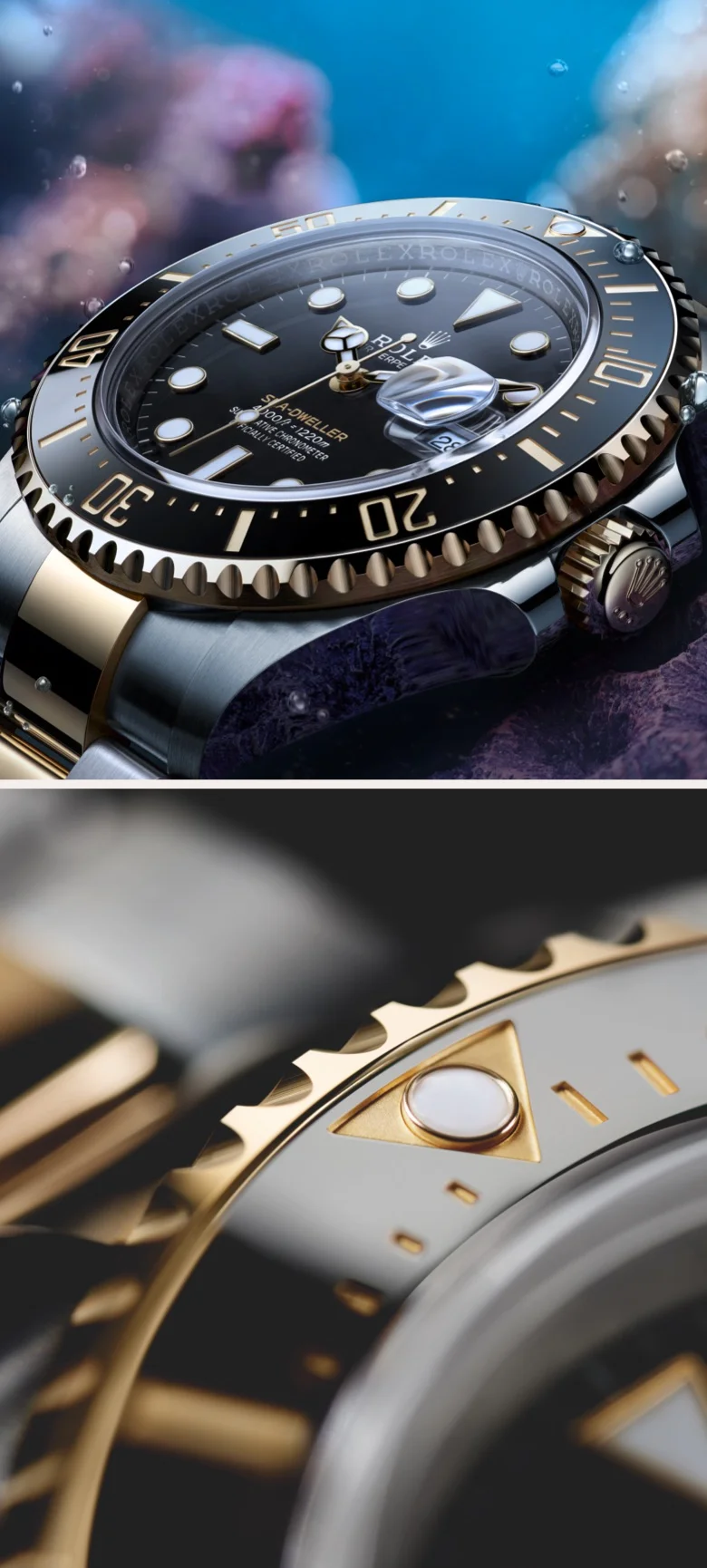
The Sea-Dweller is equipped with a Triplock winding crown. This screw-down crown was invented in 1970 and comprises three waterproofness zones. It reinforces the impermeability of the Sea-Dweller’s 43 mm Oyster case, whose middle case is crafted from a solid block of Oystersteel, a particularly corrosion-resistant alloy.
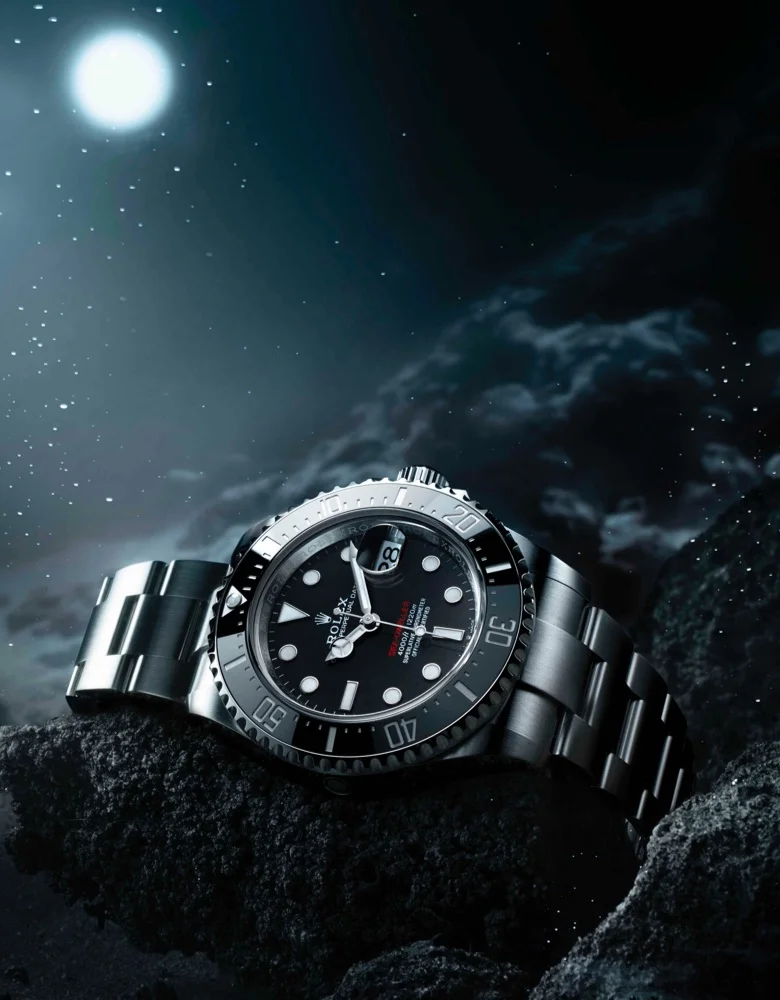
Explorers and oceanographers, like Sylvia Earle, and underwater photographers, such as David Doubilet, are committed to preserving the ocean and know that it is our most precious resource. They wear a Sea-Dweller to reflect their passion and commitment.
Rolex has also partnered with Comex (Compagnie Maritime d'Expertises) since 1971. For several decades, the Sea-Dweller has equipped the divers of this French company, which specializes in underwater engineering, technology and intervention.